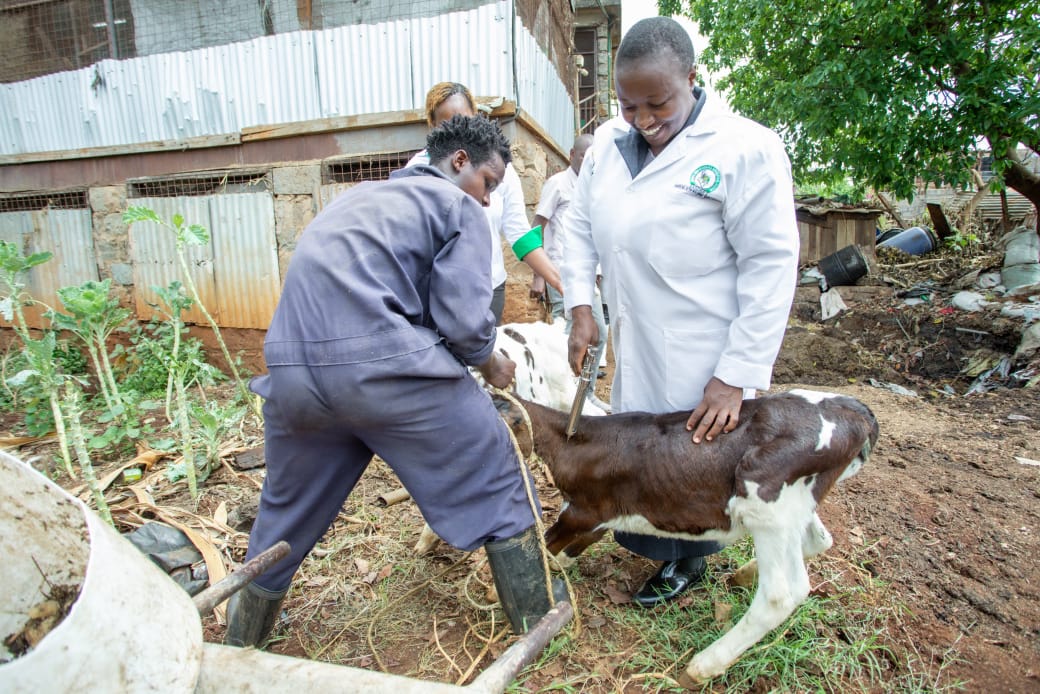
Limit cattle movement to tame foot and mouth disease, says Bii
He urged farmers to report all cases of sick animals.
The initiative aims to protect 80,000 cattle against Lumpy Skin Disease.
In Summary

The initiative led by the county’s veterinary department seeks to immunise cattle and reinforce the livelihoods of local farmers while boosting the county’s dairy sector.
This is part of Governor Anne Waiguru’s broader Wezesha Kirinyaga programme, designed to support dairy farmers with subsidised feeds, Artificial Insemination (A.I.) services, milk processing equipment, and market access.
“We normally have two vaccination cycles in every financial year to ensure that we control livestock diseases and vectors,” John Gachara.
Gachara is the County Executive Committee Member (CECM) for Agriculture, Livestock, Veterinary, and Fisheries.
He urged farmers to take advantage of this month-long vaccination campaign, set to conclude on November 16.
This vaccination drive is expected to bring economic relief to farmers, who have voiced appreciation for the subsidies offered.
“I have had my 16 animals vaccinated for only Sh100 per animal. Ordinarily, I would have paid Ksh. 1,000 per animal to private providers. Out of the Sh16,000 I could have paid; I have only parted with Sh1,600, saving a lot of money,” Rose Wambui, a farmer from Umbui village.
Wambui also praised the county's agricultural officers, whose regular farm visits and expert advice have helped her maintain a healthy herd.
The door-to-door nature of the vaccination effort has been warmly received, as it allows farmers to avoid the inconvenience of transporting their livestock to central locations, which also reduces the risk of disease transmission between herds.

“Vaccinating animals within our farms saves us time and also reduces interaction of many herds, preventing transmission from sick animals to healthy ones,” Hillary Kamotoku, another farmer said.
According to County Head of Veterinary Services Catherine Mulonzi, the vaccination programme includes thousands of dogs and cats which are being vaccinated against rabies, in addition to cattle.
Mulonzi raised concern over the high prevalence of Lumpy Skin Disease in the region, underscoring the importance of the county government’s timely intervention.
The World Organisation for Animal Health classifies Lumpy Skin Disease as a highly contagious disease in cattle.
It is characterised by symptoms including fever, nodules on
the skin, swollen lymph nodes, and, in severe cases, death.
The disease can also cause temporary declines in milk production and can lead to sterility in bulls, skin damage, and, occasionally, death.
The vaccination drive not only protects the health of livestock but also strengthens the livelihoods of Kirinyaga’s small-scale farmers, many of whom would otherwise struggle to afford such services.
Margaret Thiguku, an elderly farmer from Kirinyaga Central, expressed joy after her two dairy cows were vaccinated, calling the county’s subsidy a lifeline for those like herself.

He urged farmers to report all cases of sick animals.